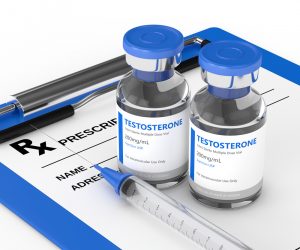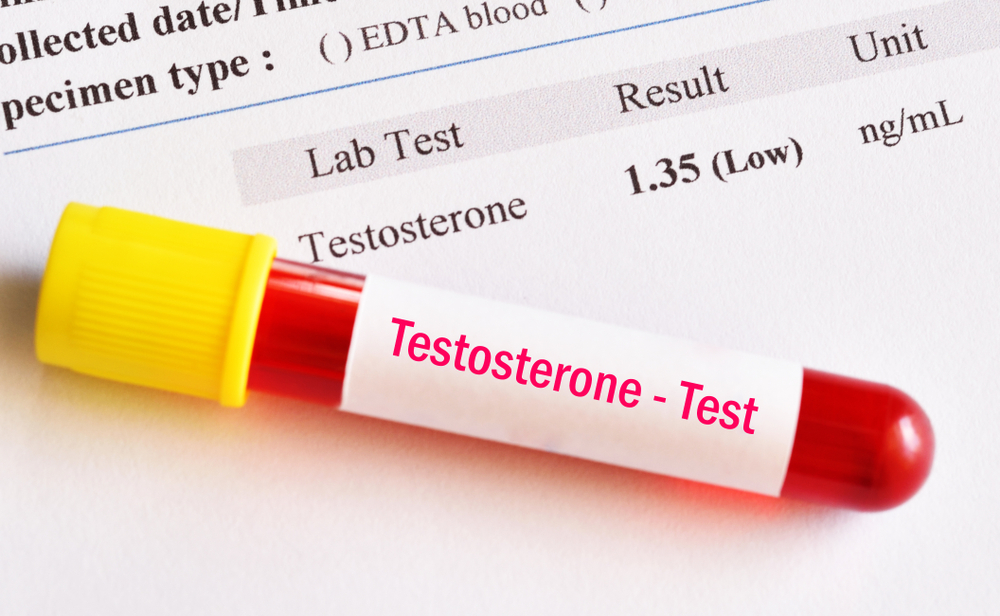Testosterone is the main male sex hormone that is in charge of various important sexual and reproductive functions. It is essential in bone and muscle growth and development, sexual desire or libido regulation, fat distribution, sperm production, and red blood cell formation.
Unfortunately, as men age, they tend to produce less testosterone. As a result, they become at great risk of different diseases and disorders that stem from low testosterone levels. They lose bone and muscle mass, become weaker, have a diminished sex drive, produce poor quality sperm, and experience various penile and erectile issues.
Because of how important testosterone is in men, keeping it at the right level at all times is a must. Your testosterone levels should often be checked to make sure that any abnormality is detected and treated right away, before your condition gets any worse.
What causes low testosterone levels in men?
There are several things that can lower a man’s testosterone levels. If you are:
- Suffering from any injury to your testicles
- Having testicular cancer
- Undergoing treatment for testicular cancer
- Battling kidney disease or chronic liver disease
- Diagnosed with type 2 diabetes
- Are overweight or obese
- Are afflicted with certain types of infections
- Dealing with hormonal imbalances and disorders
- Taking medications that can negatively impact your testosterone
your testosterone levels are likely to suffer a decrease.
How do you know if your testosterone levels are low?
Men whose testosterone levels are low manifest a number of noticeable symptoms. Some common examples are:

- Hair loss
- Weight gain
- Increased body fat
- Weak muscles
- Reduced bone and muscle mass
- Exhaustion
- Having trouble getting an erection
- Cannot keep erection long enough
- Decreased sex drive
- Poor sperm quality
- Low sperm count
- Infertility
Aside from watching out for these warning signs to know if your testosterone levels are low, you should also get a testosterone levels test.
What is a testosterone levels test?
A testosterone levels test is a type of test that determines the amount of testosterone in your body. Also known as serum testosterone test, it requires your blood sample to measure if your testosterone levels fall within the ideal nanograms per deciliter (ng/dL) range.
In men, a testosterone level is considered healthy and good if it is between 270 ng/dL and 1070 ng/dL, or somewhere close to the average level of 679 ng/dL. Usually, those in their early 20s, who are at the peaks of their sexual and fertility functions, have levels that are right up there.
What are the steps involved in a testosterone levels test?
If you want to undergo a testosterone levels test, and are curious about what happens, the process typically goes as follows:
- First, a health worker will clean the spot where a sample of your blood will be drawn. Usually, it is the inside of your elbow or the back of your hand.
- They will try to create a blood pool in your vein by tying an elastic band around your upper arm.
- Then, using a sterile needle, they will draw your blood specimen into a tube.
- Once your blood sample is collected, they will untie the elastic band around your arm and remove the needle from your vein.
- To prevent bleeding and bruising, they will apply pressure onto the insertion area, and then apply a bandage.
- Your blood sample will be forwarded to the laboratory for closer examination.
Experiencing some discomfort, throbbing, or pain after the procedure is normal, and you should feel better in no time. Try to keep your arm relaxed, and avoid subjecting it to strain or pressure so soon after.
What should you do after receiving your testosterone levels test results?
If your testosterone levels test results show that your testosterone levels are normal, meaning they are between 270 ng/dL and 1070 ng/dL, then you are fine. You should stop worrying, and continue living a healthy lifestyle that keeps you in tip-top sexual shape.

If your testosterone levels test results are low, meaning they are below 270 ng/dL, you should talk to your doctor right away. Low testosterone may be a sign of some underlying disease that may genetic or chronic in nature. There is also a possibility that it is caused by certain issues with your pituitary gland, which is an important organ in your brain that facilitates growth, fertility, and other essential bodily functions.
If your testosterone levels are high, meaning they are over 1070 ng/dL, you should pay your doctor a visit too, as high testosterone is typically associated with tumor in the adrenal glands, which are necessary in the management of your body’s blood pressure, heart rate, and other functions; or testicles, which is where your sperm is produced.
What can you do to boost your testosterone levels?
There are different methods that can help increase your testosterone. Some examples are:
Testosterone Replacement Therapy (TRT)
This is a form of treatment that is administered through injections, gels, or patches. It offers several benefits, including improving your sex drive, enhancing your energy levels, boosting your mood, and promoting better sperm count, quality, and motility. However, if not properly supervised by a health professional, you can become at risk of various negative side effects, such as stroke, blood clots, heart attack, liver problems, enlarged prostate, and tumors.
Weight loss
This is a natural way to boost your testosterone levels. According to a study, men who are overweight or obese do not only have higher risk of diabetes and cardiovascular disease, but they also exhibit low testosterone levels. By losing those extra pounds, your body will be able to perform its different functions more efficiently, and allow you to live a long and healthy life.
Increased zinc intake
This is another natural testosterone boosting method that should help with your testosterone levels. The mineral zinc is essential in regulating your body’s testosterone levels, protecting you against hypogonadism, erectile dysfunction, and other sexual health concerns. Examples of good zinc sources are beans, whole grains, nuts, lobster, and crab.







